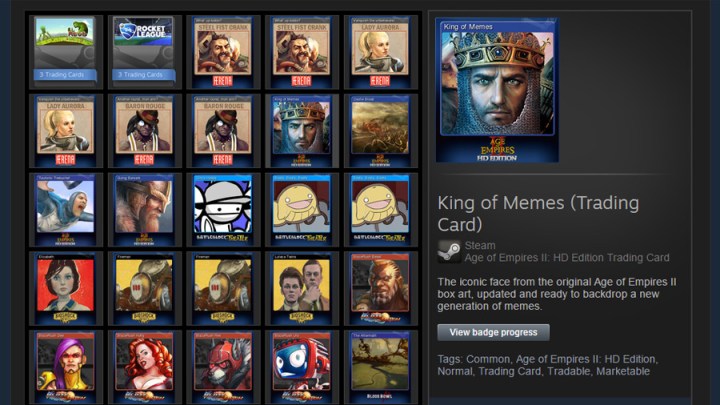
Introduced in 2013, Steam trading cards are a collectible digital currency, of sorts, letting some gamers show off their favorite games and helping everyone else earn a little extra cash toward their next purchase. However, Valve found many groups push what it describes as “fake” games onto Steam in order to then have bot accounts earn Steam cards, which they then sell on to players. Moving forward, it wants to stop that from happening.
Instead of making it harder to get games on Steam, or restricting the number of keys that developers can distribute, Valve has placed a hold on Steam cards being given out by games. It’s not permanent but Valve will make gamers wait until new games have reached a certain “confidence” level before it will distribute them.
It doesn’t go into details about what metrics that level considers — for obvious reasons — but does say that once Valve feels confident that the game is being played by real gamers and not a host of bot accounts, it will release the cards. They will go to all new players right away from then on and be retroactively given out to gamers who have been playing for a while.
Although Valve has made use of this confidence metric in the past to try and stop illegitimate games from making it through the Greenlight process, it said in its blog post that it needs the wider Steam community data to really make it work. In comparison, Greenlight is only used by a small subsection of PC gamers, so it wasn’t as effective there.
These changes should reduce the economic incentive of those looking to cheat the Steam trading card system while having little negative impact on legitimate games and players.
Ultimately, though, this should mean that the Steam algorithms, which are designed to recommend new and exciting games to players, will not be affected by the bad actors looking to exploit the marketplace for their own financial gain.



